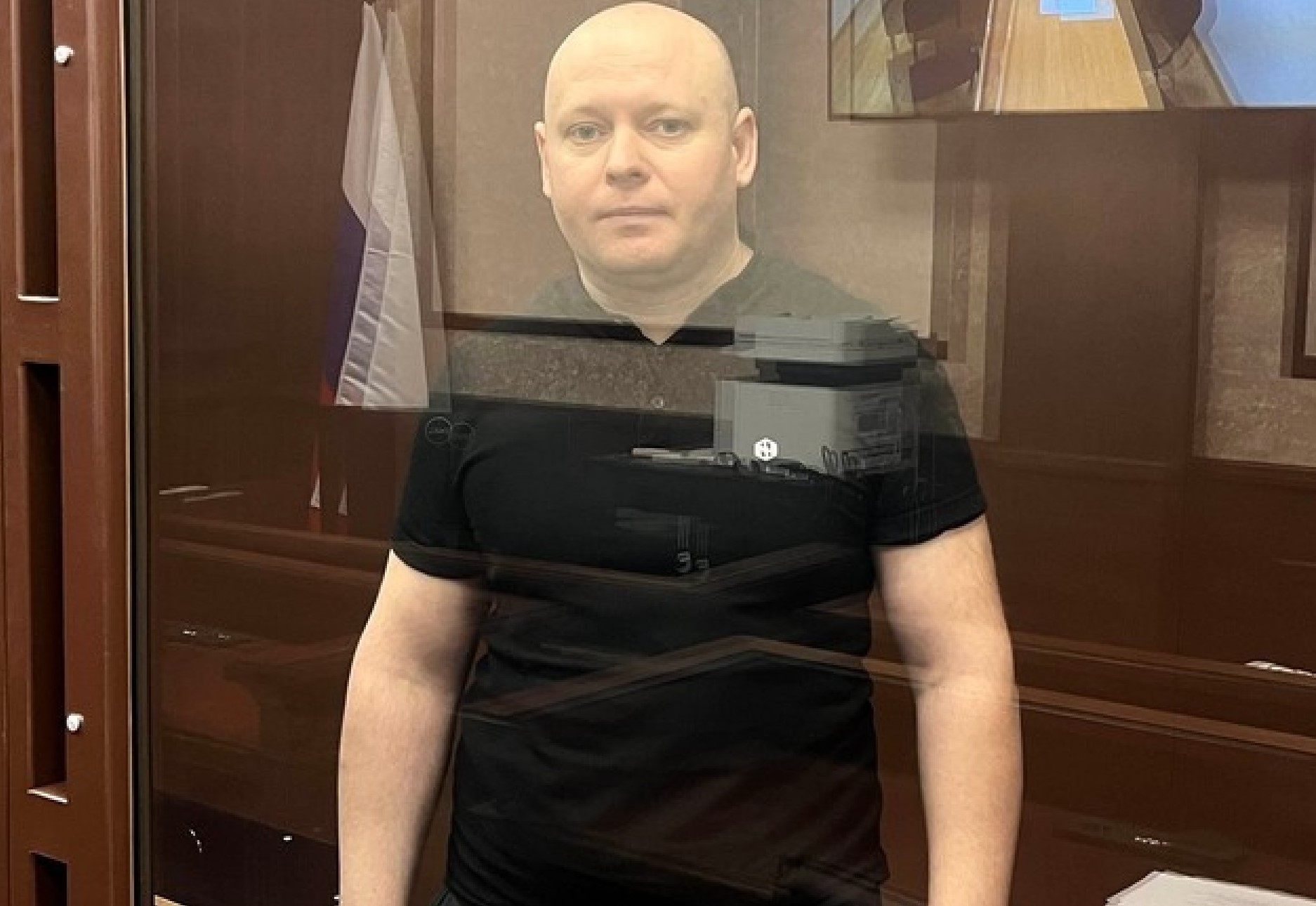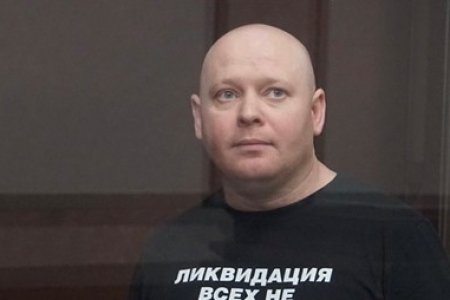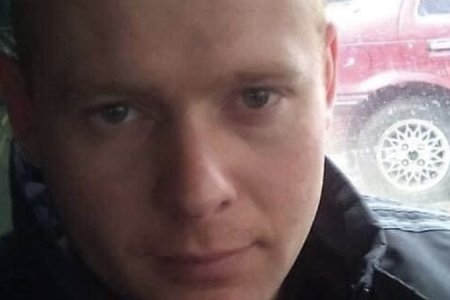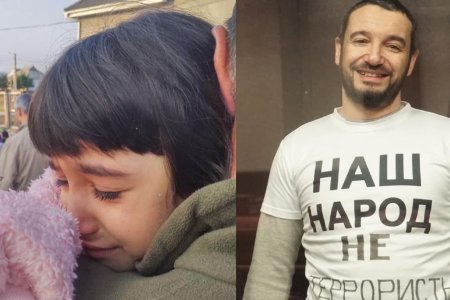
A Russian court of appeal has agreed that recognized Crimean Tatar political prisoner Ametkhan Abdulvapov should serve a 10.5-year sentence despite the lack of any recognizable crime and the fact that the alleged ‘proof’ against him had been obtained by the Russian FSB seven years earlier. Neither the prosecution, nor any of the judges involved in passing this appalling sentence have been willing to ask why, if Abdulvapov was seriously suspected of ‘terrorism’, it took the FSB seven years to react.
The hearing took place on 27 November 2023 at the military court of appeal in Vlasikha (Moscow region) under presiding ‘judge’ Anatoly Valentinovych Solin. Abdulvapov’s lawyer, Refat Yunus, reports that they were given the opportunity to demonstrate the flaws in the evidence, etc., this would seem to have been as much of a formality as during the original trial at the Southern District Military Court in Rostov. These are politically motivated sentences and judges seldom do more than reduce the sentence demanded by the prosecutor or that handed down by the first-instance court. The defence is planning to lodge a cassation appeal.
Fake ‘terrorism’
Ametkhan Abdulvapov (b. 23.02.1989) is a mechanical engineer and father of two. He was arrested on 9 February 2022 and has been in custody ever since, although he was only ever accused of involvement in a peaceful religious organization – the transnational Muslim Hizb ut-Tahrir party which is legal in Ukraine.
Russia is basing its persecution of an ever-mounting number of Crimean Tatar and other Ukrainian Muslims on a secretive supreme court ruling from February 2003. This declared Hizb ut-Tahrir ‘terrorist’ without providing any explanation, and without informing Hizb ut-Tahrir representatives and human rights groups who learned of it long after the term for lodging an appeal had elapsed. There are grounds for believing the original ruling to have been politically motivated, and Russia is actively using such charges in occupied Crimea as a weapon against members of the Crimean Tatar human rights movement.
The mere existence of this supreme court ruling is deemed sufficient to use terrorism charges against those arrested, with this. In turn, leading to men being sentenced to 20 years or more. Abdulvapov was accused of ‘involvement in a Hizb ut-Tahrir group’ under Article 205.5 § 2, and the totally surreal ‘Article 278’, ‘planning a violent seizure of power and change in Russia’s constitutional order”. Both of the charges were based soley on the court ruling, and it was noticeable, during the armed ‘search’ of Abdulvapov’s home on 9 February 2022, that the enforcement officers made no presence of looking for anything but ‘prohibited literature’. As is very often the case, they also brought ‘prohibited books’ with them, which they then claimed to have found.
Although the men were arrested separately, Abdulvapov’s case was linked with that of Raif Fevziev, a local Imam and a civic activist, who held prayer services on the eve of politically motivated sentences and also attended political ‘trials’.
Fake evidence
The flaws in these trials are not confined to the totally unwarranted charges of ‘terrorism’, or to the fact that Russia, as occupying power, has no right to apply its own legislation on occupied territory.
Essentially no real proof of involvement is required. As well as frequently planting the ‘prohibited literature’ they then pretend to have found, the FSB organize illicit tapes of conversations among Muslims in mosques or people’s homes. The transcripts in often faulty translation are then passed to FSB-loyal ‘experts’ who provide whatever ‘assessment’ is required of them. The same is true of the ‘secret witnesses’ who invariably repeat, almost verbatim, the indictment, while being unable to answer even the simplest questions that would prove that they genuinely knew the defendant.
The charges against both Abdulvapov and Raif Fevziev were based on a conversation in December 2015, and on two secret witnesses, whose alleged ‘testimony’ was also about 2015.
No semblance of a fair trial, and predetermined sentences
Nobody even attempted to explain why the FSB had sat on supposed ‘evidence of terrorism’ for seven years and neither first, nor appeal, court saw any need to find this out.
The courts’ bias in favour of the prosecution was seen throughout this trial. There was no reason to allow witnesses to provide ‘testimony’ in secret, and the court also positively obstructed the defence by blocking entirely legitimate questions aimed solely at demonstrating that the ‘secret witnesses’ are lying.
On 15 March 2023, presiding judge Igor Kostin, together with Roman Plisko and Alexei Sannikov provided the ‘guilty’ verdict required and a 10.5-year sentence in the worst of Russian penal colonies. The sentence was lower than the 12 years demanded by prosecutor Vladislav Kuznetsov, but all were, undoubtedly, aware that they were playing their part in imprisoning a person who had committed no crime. The same is true of Anatoly Solin from the military court of appeal.
Please help by ensuring that people know about Ametkhan Abdulvapov, and by seeking international sanctions against all those implicated in such appalling politically motivated persecution.



